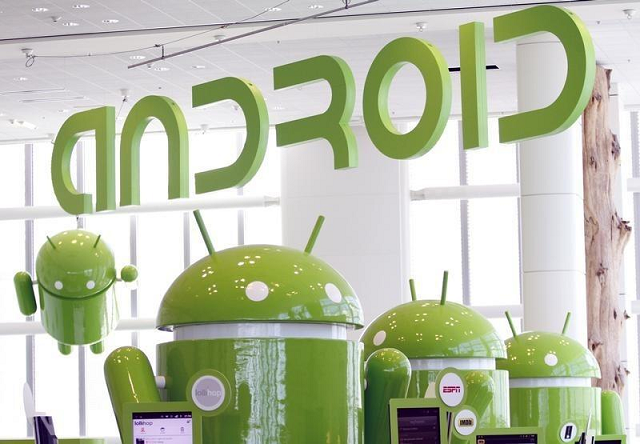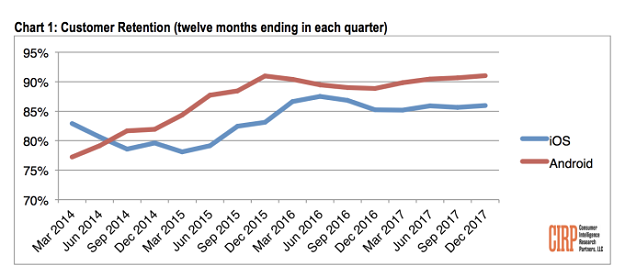Study reveals users more loyal to Android than iOS
The report states that loyalty has increased in recent times and stands at its highest peak

Android mascots are lined up in the demonstration area at the Google I/O Developers Conference in the Moscone Center in San Francisco, California, May 10, 2011.
PHOTO: REUTERS
Whether that's true depends on a variety of factors but one thing seems to be decided -- Android users are more loyal to their OS than Apple users.
A study conducted by Consumer Intelligence Research Partners (CIRP) has found that Android users tend to be more loyal to their brand compared to their iOS counterparts.
The report states that their loyalty has increased in recent times reaching its highest peak. 91 per cent of Android users stayed with their OS while only 86 per cent stuck with the Apple alternative.
Few phone makers will survive industry's brutal economics
 PHOTO: CIRP
PHOTO: CIRP“With only two mobile operating systems at this point, it appears users now pick one, learn it, invest in apps and storage, and stick with it,” Mike Levin, partner and co-founder of CIRP told TechCrunch.
However, CIRP’s report states that Android has a larger base of users than iOS, therefore, the numbers could also vary.
Another edge Android enjoys over iOS is the variety of phones Android users can switch to without having to leave the system. For iOS users, the iPhone series are the only options.
“Android users also benefit from a wide range of phones from different manufacturers, so they can switch hardware without learning a new operating system,” said Josh Lowitz, Partner, and Co-Founder of CIRP.
Wait, I know you: home security startup taps face-recognition tech
In 2013, iOS users seemed to be more loyal to their brand but from January 2016 through to December 2017, Android has taken the lead shuffling between 89 to 91 per cent while iOS has stayed between 85 to 88 per cent.
Whether this has anything to do with the type of iPhones released during the period is something that cannot be conclusively derived with a lot of factors having a role to play.


















COMMENTS
Comments are moderated and generally will be posted if they are on-topic and not abusive.
For more information, please see our Comments FAQ